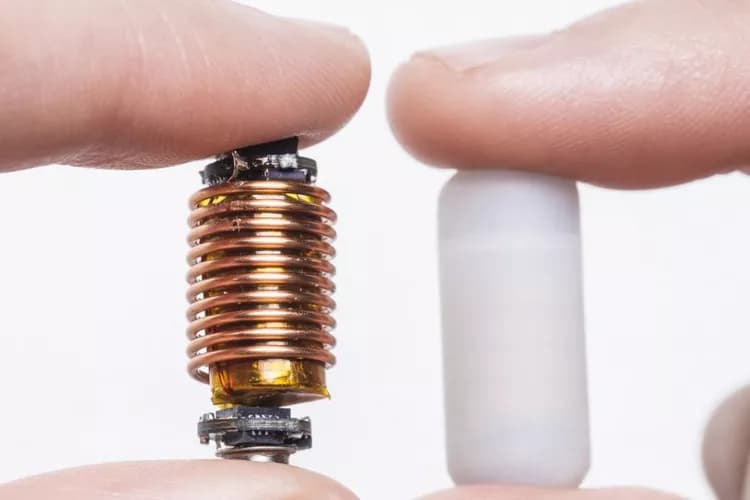
Gut Reaction: Smart Pill Smells Out The Body's Fiber Factor
Researchers have conducted the first ever trials of smart pills that can measure intestinal gases inside the body, with surprising results revealing some unexpected ways that fibre affects the gut.
Intestinal gases have been linked to colon cancer, irritable bowel syndrome (IBS) and inflammatory bowel disease (IBD), but their role in health is poorly understood and there is currently no easy and reliable tool for detecting them inside the gut.
The first animal trials of smart gas sensing pills developed at Australia's RMIT University -- which can send data from inside the gut directly to a mobile phone -- have examined the impact of low and high-fibre diets on intestinal gases and offer new clues for the development of treatments for gut disorders.
Lead investigator Professor Kourosh Kalantar-zadeh, from the Centre for Advanced Electronics and Sensors at RMIT, said the results reversed current assumptions about the effect of fibre on the gut.
"We found a low-fibre diet produced four times more hydrogen in the small intestine than a high-fibre diet," Kalantar-zadeh said.
"This was a complete surprise because hydrogen is produced through fermentation, so we naturally expected more fibre would equal more of this fermentation gas.
"The smart pills allow us to identify precisely where the gases are produced and help us understand the microbial activity in these areas -- it's the first step in demolishing the myths of food effects on our body and replacing those myths with hard facts.
"We hope this technology will in future enable researchers to design personalised diets or drugs that can efficiently target problem areas in the gut, to help the millions of people worldwide that are affected by digestive disorders and diseases."
The trials revealed different levels of fibre in a diet affected both how much gas was produced and where it was concentrated in the gut -- in the stomach, small intestine or large intestine.
The smart pills were trialled on two groups of pigs -- whose digestive systems are similar to humans -- fed high and low-fibre diets. The results indicate the technology could help doctors differentiate gut disorders such as IBS, showing:
- high-fibre diets produce more methane gas in the large intestine than the low-fibre diet, suggesting that painful gut gas retention could be avoided by cutting back on high-fibre food
- low-fibre diets produced four times more hydrogen gas in the small intestine than high-fibre, indicating a high-fibre regimen could be better for patients with IBS caused by bacterial overgrowth in small intestine
- the ratio of carbon dioxide and methane gases remained the same in the large intestine for both diets, suggesting that neither diet would be helpful for people suffering IBS diseases associated with excess methane concentration
The above post is reprinted from materials provided by RMIT University.Note: Materials may be edited for content and length.
Disclaimer: DoveMed is not responsible for the adapted accuracy of news releases posted to DoveMed by contributing universities and institutions.
Primary Resource:
Kalantar-zadeh, K., Yao, C. K., Berean, K. J., Ha, N., Ou, J. Z., Ward, S. A., ... & McSweeney, C. (2016). Intestinal gas capsules: a proof-of-concept demonstration. Gastroenterology, 150(1), 37-39.
Related Articles
Test Your Knowledge
Asked by users
Related Centers
Related Specialties
Related Physicians
Related Procedures
Related Resources
Join DoveHubs
and connect with fellow professionals

0 Comments
Please log in to post a comment.